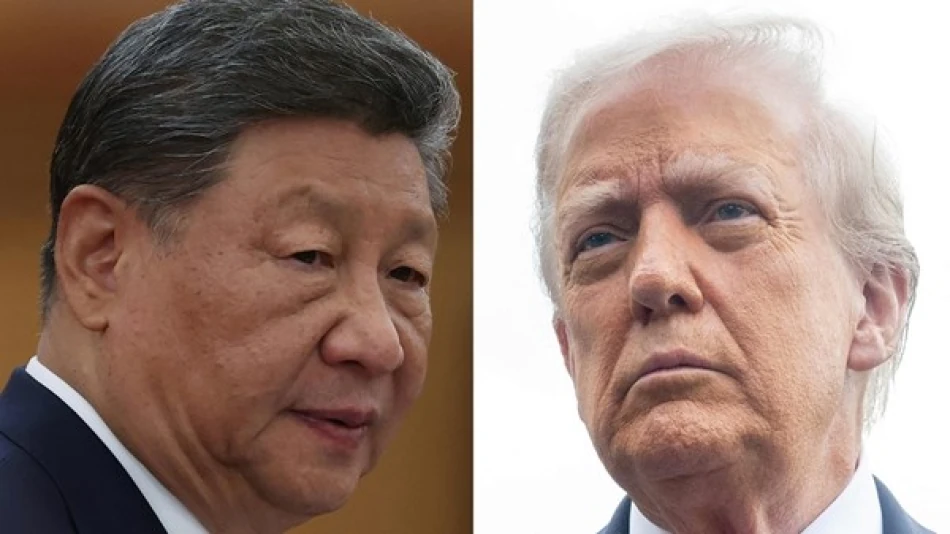
Chinese President Comments on Talks with Trump, Highlights Key Discussions
Xi and Trump Signal Trade Détente as TikTok Deal Takes Shape
Chinese President Xi Jinping and US President Donald Trump held what both leaders described as a productive phone call Friday, with Xi urging America to avoid "unilateral" trade restrictions while Trump hinted at progress on a TikTok agreement. The conversation marks a potential thaw in US-China relations as both economic superpowers navigate toward a November trade truce while scheduling face-to-face meetings that could reshape global commerce.
Beijing's Strategic Push for Market Access
Xi's appeal for a "non-discriminatory" business environment for Chinese companies operating in the US reflects Beijing's growing concern over American restrictions on Chinese investments and technology transfers. The Chinese leader specifically warned against undermining gains made through "multiple negotiation rounds," suggesting both nations have invested significant political capital in reaching their current détente.
This diplomatic language masks a harder reality: China needs continued access to US markets and technology to sustain its economic growth, while facing increasing scrutiny over national security concerns in Washington. Xi's emphasis on "market-compliant trade negotiations" signals Beijing's willingness to work within existing international frameworks rather than challenge them directly.
TikTok Deal Emerges as Test Case
Trump's claim of progress on TikTok represents a significant shift from previous hardline stances on Chinese-owned technology platforms. While neither leader announced specifics, any agreement would likely involve restructuring TikTok's US operations to address national security concerns while allowing ByteDance to maintain some ownership stake.
Such a deal would mirror arrangements seen in other jurisdictions where Chinese tech companies have created separate entities or partnerships to operate in sensitive markets. The TikTok resolution could serve as a template for other Chinese technology firms seeking to maintain US market access.
Trade War Fatigue Drives Pragmatic Approach
The November 10th deadline for their trade truce creates urgency for both leaders to demonstrate concrete progress. Unlike the trade wars of 2018-2020, which saw escalating tariffs harm both economies, the current approach emphasizes managed competition over outright confrontation.
Trump's mention of cooperation on fentanyl trafficking and the Russia-Ukraine conflict indicates the conversation extended beyond purely economic issues. This broader agenda suggests both leaders recognize that US-China relations affect global stability, from supply chain security to geopolitical conflicts.
Summit Diplomacy Returns to Center Stage
The planned meeting at the Asia-Pacific Economic Cooperation summit in South Korea, followed by reciprocal state visits, represents a return to traditional great power diplomacy. These face-to-face encounters will likely focus on establishing guardrails for competition while identifying areas for cooperation.
For global markets, this diplomatic engagement reduces the risk of sudden policy shifts that have previously roiled international trade. Investors can expect more predictable US-China relations, though underlying strategic competition will persist.
Implications for Global Economic Order
The Xi-Trump dialogue occurs as other nations watch carefully for signals about future US-China economic integration. European allies, ASEAN countries, and other trading partners have struggled to navigate between the world's two largest economies during periods of high tension.
A more stable US-China relationship could reduce pressure on third countries to choose sides, potentially benefiting global supply chains and multilateral trade agreements. However, the fundamental competition between American and Chinese economic models—from technology standards to development finance—will continue shaping international commerce regardless of diplomatic progress.
Most Viewed News

 Layla Al Mansoori
Layla Al Mansoori






